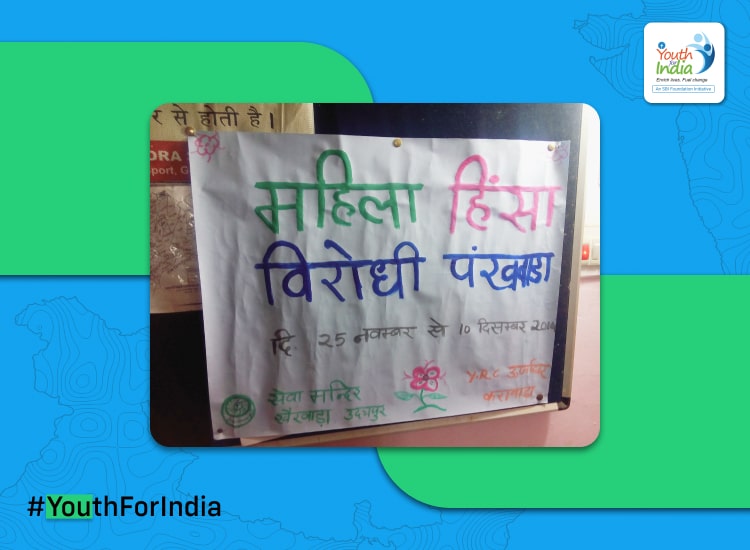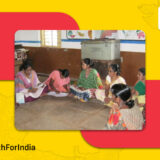
Discussing Gender Discrimination in Rural Areas of India
Gender discrimination remains a significant barrier to the realization of rights and development for women, particularly those living in rural areas.
Michelle Bachelet, UN High Commissioner for Human Rights
Introduction
In times like these, when we need more voices to be raised around gender violence, our SBI #YouthforIndia fellow Siddhant discovered, in two villages, a discussion group where people come together and discuss issues related to women, ranging from domestic violence to child marriage and gender discrimination in rural areas.
The Mahila Hinsha Virodhi Pakhwada
As the name suggests, ‘Mahila Hinsha Virodhi Pakhwada’ is a place where not only women but people from different age groups of society come together to discuss different issues related to violence against women. This meeting is organized every year all over India, from 25th November to 10th December by different organizations, NGOs, and SHGs.
Attending the Pakhwada
I attended two Pakhwada’s on the 5th and 6th of December, in my project location at Karawada and Kojawada, in Kherwada block of Udaipur District. Nearly 200 people comprising men, women, elders, and youths of almost 15 villages attended this ‘open-ended discussion’ conducted by Seva Mandir in the respective Youth Resource Centres.

Discussion Topics
Topics like child marriage, increasing school dropout rates for girls, gender discrimination, eve teasing, early relationships between boys and girls in school, and migration issues were discussed using the ‘problem, effect and solution analysis’ on a chart paper. There were groups formed according to varying age groups, and each group had to come up with different success stories, case studies, problems, and solutions.
Also Read: SST Modern Farming Technique: A Success Story
Key Insights
At the end of the day, it was decided that issues like child marriage, increasing school dropout rates for girls, and gender discrimination in rural areas need to be immediately tackled in the villages as their rate is very high in this particular region.


